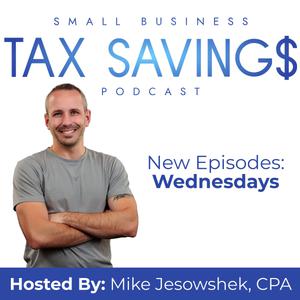
Small Business Tax Savings Podcast
Mike Jesowshek, CPA
The Small Business Tax Savings Podcast is designed specifically for small business owners. We focus on tax savings and ways to have a financially sound back bone to your small business. Our goal is to have you paying the least amount in taxes as legally possible.Hosted by by Mike Jesowshek, CPA, this is a quick hitting podcast aimed to get you important information without all the fluff. You can find episodes, blog posts, information on our software TaxElm and more on our website: www.TaxSavingsPodcast.com
- 31 minutes 44 secondsRetirement Moves You Can Still Make for 2024 Taxes
Are you maximizing your tax savings while building your retirement plan, or leaving opportunities on the table?
In this episode, Mike Jesowshek is joined by Matt Ruttenberg to discuss strategies for reducing your 2024 tax bill through retirement contributions and planning. They highlight key deadlines for individual and employer contributions, such as the April 15th cutoff for IRAs and the extended filing deadlines for employer contributions. They also delve into options like solo 401(k)s, safe harbor plans, and cash balance plans, emphasizing the importance of early planning and ongoing consultation to maximize tax savings and retirement benefits.
[00:00 - 02:17] Introduction- Mike welcomes Matt Ruttenberg back to the show as a trusted retirement expert.
- Discussion begins with how the new year presents opportunities to address past tax planning mistakes.
[02:18 - 05:59] IRA Contributions- Deadlines for Roth and traditional IRAs are April 15th.
- Contributions are based on individual earned income, not business profits.
Lesson: Plan IRA contributions early, as extensions don't apply.
[06:00 - 10:14] Profit Sharing and Employer Contributions- Employer contributions for profit sharing plans can be made until the extended filing deadline.
- Different strategies, such as "new comparability," can maximize owner benefits.
[10:15 - 13:28] Solo 401(k)s and New Rules- First-year solo 401(k) participants can contribute employee portions up to April 15th.
- This rule applies to sole proprietors and single-member LLCs, not S-corporations.
[13:29 - 16:11] Safe Harbor and Compliance- Safe harbor plans help owners and highly compensated employees avoid compliance issues.
- A 4% non-elective contribution can be made post-deadline to improve compliance.
[16:12 - 24:33] Advanced Plans: Cash Balance and Defined Benefit- High-income businesses can use defined benefit plans for contributions up to $300,000.
- These plans require actuary involvement and multi-year commitments.
[24:34 - 31:16] Key Takeaways and Planning for 2025- Employer contributions can be made until the filing deadline, including extensions.
- 2025 should focus on proactive tax planning to avoid last-minute issues.
Direct Quote:"All 401(k) plans are not created equal; work with someone who knows the options available to you." - Matt Ruttenberg
Build a custom 401(k) for your business by visiting https://lifeincrs.com/tax-savings-podcast/
______
Podcast Host: Mike Jesowshek, CPA - Founder and Host of Small Business Tax Savings Podcast
Join TaxElm: https://taxelm.com/
-------
Podcast Website: https://www.TaxSavingsPodcast.com
Facebook Group: https://www.facebook.com/groups/taxsavings/
YouTube: www.TaxSavingsTV.com
15 January 2025, 10:00 am - 20 minutes 34 secondsMaximize Your Wealth In 2025 - Create Your Financial Roadmap Now!
How prepared are you to make 2025 your best financial year yet?
In this episode, Mike Jesowshek dives into strategic financial planning for 2025, emphasizing the importance of a financial summary document, proactive tax planning, and long-term strategic business planning. He explains how to create a comprehensive financial summary, differentiate between tax preparation and tax planning, and implement actionable goals to achieve financial clarity and growth. By focusing on yearly updates, tax strategies, and structured plans, listeners are encouraged to approach the new year with clarity and purpose.
Explore how a clear financial summary, tax strategies, and strategic planning can set you up for success.
[00:00 - 05:12] Creating a Financial Summary Document- Mike explains the purpose and benefits of a financial summary document.
- Annual updates to a financial summary provide clarity and preparedness.
[05:13 - 12:39] Tax Preparation vs. Tax Planning- Mike shares the distinction between compliance-focused tax preparation and strategy-driven tax planning.
- Implementing tax strategies is crucial for minimizing tax liability.
[12:40 - 17:20] Strategic Business Planning
- Strategic planning involves envisioning a 10-year perfect scenario and breaking it down into actionable goals.
- Clear planning transforms business goals into achievable steps.
[17:21 - 20:34] Key Takeaways and Resources
- Mike recaps the importance of financial summaries, tax planning, and strategic business goals.
- Success is intentional and requires consistent planning.
Direct Quotes:"Success doesn't just happen. It's planned." - Mike Jesowshek, CPA
"Learning is important, but implementation is the next step." - Mike Jesowshek, CPA
"Strategic planning helps turn dreams into reality by breaking down goals into actionable steps." - Mike Jesowshek, CPA
______
Podcast Host: Mike Jesowshek, CPA - Founder and Host of Small Business Tax Savings Podcast
Join TaxElm: https://taxelm.com/
-------
Podcast Website: https://www.TaxSavingsPodcast.com
Facebook Group: https://www.facebook.com/groups/taxsavings/
YouTube: www.TaxSavingsTV.com
8 January 2025, 10:00 am - 18 minutes 58 secondsThe New IRS Rule That Could Cost Your Business THOUSANDS
Are you prepared for the IRS’s new 1099-K reporting rules and how they could impact your business's bottom line?
In this episode, Mike Jesowshek discusses the significant changes to the IRS 1099-K rule and its potential impact on small businesses, freelancers, and online sellers. The rule, initially requiring payment processors to report income over $20,000, is being gradually lowered to $600 by 2026. Mike explains how this rule aims to address underreported income and outlines the implications for businesses accepting payments via platforms like PayPal, Venmo, and Stripe. He emphasizes the importance of accurate reporting to avoid IRS scrutiny and offers a free demo call to help listeners prepare their tax strategies.
[00:00 - 06:42] Why the 1099-K Rule Was Introduced
- Mike discusses the significance of the 1099-K for freelancers, small businesses, and gig workers.
- Understanding this rule is key to avoiding surprises during tax season.
- The motivation behind the rule: addressing underreported income from goods and services.
- Report all income accurately, even without a 1099-K.
[06:43 - 10:37] Who This Rule Impacts
- Mike dives deep into who’s affected: freelancers, gig workers, and small businesses.
- Proactively distinguish between personal and business transactions.
[10:38 - 14:22] Timeline and Rollout of the Rule
- Breakdown of the phase-in thresholds:
- 2024: $5,000
- 2025: $2,500
- 2026: $600
- Mike highlights potential changes due to legislative pushback.
- Stay updated on the latest developments and adapt your approach.
[14:23 - 18:58] Avoiding Tax Issues and Next Steps
- Mike shares tips for accurate reporting and reconciling 1099-K forms with your tax returns.
- Be proactive in managing your taxes to avoid penalties and ensure compliance.
Direct Quotes:“The 1099-K is a tool to let the IRS know what funds are being processed and who is receiving those funds.” - Mike Jesowshek, CPA
“This rule isn’t about changing how taxes work; it’s about changing how income is reported.” - Mike Jesowshek, CPA
“Don’t wait for a 1099-K to report your income. Always report all earnings to stay on the right side of the law.” - Mike Jesowshek, CPA
______
Podcast Host: Mike Jesowshek, CPA - Founder and Host of Small Business Tax Savings Podcast
Join TaxElm: https://taxelm.com/
-------
Podcast Website: https://www.TaxSavingsPodcast.com
Facebook Group: https://www.facebook.com/groups/taxsavings/
YouTube: www.TaxSavingsTV.com
1 January 2025, 10:00 am - 19 minutes 26 secondsTax Expert Explains How To Get Ahead of 99% of Businesses
What if a few simple shifts in your business structure and financial habits could set you ahead of 99% of companies?
In this episode, Mike Jesowshek, a CPA and founder of Taxelm, shares practical strategies for small businesses to gain a competitive edge without requiring massive investments or risky tactics. He emphasizes the importance of establishing a proper entity structure as the foundation for growth, maintaining an accurate and cloud-based bookkeeping system, and utilizing financial data to make informed business decisions. Mike also highlights key tax deductions and offers resources to help business owners optimize their financial strategies effectively.
[00:00 - 04:50] Introduction: Setting the Stage
- Mike introduces the theme of outpacing 99% of businesses with simple, effective strategies.
- Success doesn’t require excessive risk or investment; it starts with foundational business practices.
- Transitioning to an S Corporation can lead to significant tax savings.
- A well-structured entity is essential for tax efficiency and long-term growth.
[04:51 - 10:00] Building a Solid Foundation for Growth and The Backbone of Business
- Mike shares the importance of creating a management company structure for multiple business entities.
- Clear and organized entity structures reduce risks and enhance scalability.
- Consistent bookkeeping helps identify inefficiencies and drives better financial decisions.
[10:01 - 19:26] Leveraging Financial Data and Resources
- It is vital to use accurate financial statements for tax planning and business strategy.
- Mike offers a free document outlining tax deductions to maximize savings.
- Proactive financial management unlocks opportunities for growth and profitability.
Direct Quotes:“Your entity structure is the foundation of how your business operates and grows.” - Mike Jesowshek
“Bookkeeping isn’t just for taxes; it’s the backbone of understanding your business’s financial health.” - Mike Jesowshek
“A cloud-based system done correctly gives you actionable insights. Done poorly, it gives you nothing.” - Mike Jesowshek
“With the right foundation, you can grow into the 1% of business owners who succeed at scale.” - Mike Jesowshek
Check out this episode’s blog: The Ultimate Guide to Maximizing Business Deductions and Write-Offs
______
Podcast Host: Mike Jesowshek, CPA - Founder and Host of Small Business Tax Savings Podcast
Join TaxElm: https://taxelm.com/
-------
Podcast Website: https://www.TaxSavingsPodcast.com
Facebook Group: https://www.facebook.com/groups/taxsavings/
YouTube: www.TaxSavingsTV.com
25 December 2024, 10:00 am - 19 minutes 24 secondsWhy Your 401(k) Explodes After You Save $100,000
What if the key to unlocking exponential growth in your 401k is simply reaching $100,000? Could this milestone be the turning point for your financial freedom?
In this episode, Mike Jesowshek dives into the concept of why your 401k experiences explosive growth after reaching a $100,000 threshold. He explains the mechanics of compounding interest, the rule of 72, and how starting early can significantly impact retirement savings. Mike also introduces the idea of self-funded retirement accounts, detailing how business owners can leverage them to invest in areas such as real estate or cryptocurrency. He underscores the importance of surpassing the $100,000 mark to unlock greater investment opportunities and financial flexibility, offering practical tips to achieve this milestone efficiently.
[00:00 - 06:15] The Power of Compound Growth
- Mike shares his personal financial journey and why $100,000 is a pivotal milestone for investors.
- He breaks down the "rule of 72" and how it applies to achieving financial goals.
- Early and consistent investing accelerates your financial trajectory.
[06:16 - 12:10] Why $100,000 is a Game-Changer
- Mike discusses how hitting $100,000 opens doors to investment opportunities beyond traditional options.
- Reaching this milestone creates leverage for greater diversification and growth.
[12:11 - 16:45] How to Get to $100,000 Faster
- Mike highlights the importance of automating investments and sticking to a long-term strategy.
- Focus on consistency and discipline to build momentum.
[16:46 - 19:24] Final Takeaways and Encouragement
- Mike recaps the importance of achieving $100,000 and how it sets the foundation for future wealth-building.
- Take the first steps today, no matter where you are in your financial journey.
Direct Quotes:"Think of compounding interest like a snowball rolling down a hill—small at first, but it can grow into something massive over time." - Mike Jesowshek, CPA
"The rule of 72 gives you a simple formula: divide 72 by your interest rate, and you’ll know how long it takes for your money to double." - Mike Jesowshek, CPA
"Starting early with your retirement savings means you’re giving your money more time to work for you, doubling multiple times before retirement." - Mike Jesowshek, CPA
______
Podcast Host: Mike Jesowshek, CPA - Founder and Host of Small Business Tax Savings Podcast
Join TaxElm: https://taxelm.com/
-------
Podcast Website: https://www.TaxSavingsPodcast.com
Facebook Group: https://www.facebook.com/groups/taxsavings/
YouTube: www.TaxSavingsTV.com
18 December 2024, 10:00 am - 27 minutes 54 secondsTax Questions Answered: Vehicle Deductions, Entity Structure, WOTC Compliance, and More!
Did you know you can maximize your HSA contributions even if you switch to a high-deductible health plan late in the year?
In this episode of the Small Business Tax Savings Podcast, Mike Jesowshek answers listener-submitted tax and business-related questions, covering topics such as HSA contributions, structuring multiple businesses, employing children, vehicle deductions, the Employee Retention Tax Credit (ERC), and year-end tax planning strategies. He emphasizes the importance of implementing tax-saving strategies tailored to individual circumstances and highlights tools like Tax Savings Podcast resources and Taxelm for deeper guidance.
Discover this and more tax-saving tips in today’s listener Q&A episode!
[00:00 - 02:53] HSA Contributions and the Last Month Rule
- Mike explains the IRS’s Last Month Rule, allowing full-year HSA contributions if enrolled by December 1st.
[02:53 - 05:42] Starting a Business and Learning Tax Strategies
- A Minnesota listener seeks guidance after forming a new business.
- What is the importance of implementation over mere learning of tax strategies?
[05:42 - 07:39] Employing Children and Managing Child Support
- Mike gives advice on structuring small business ownership to avoid affecting child support obligations.
[07:39 - 13:00] Structuring Multiple Businesses
- Discussion on using DBAs versus separate LLCs for businesses in different verticals.
- Consideration of liability and future sale opportunities.
[13:00 - 19:16] Core Tax Strategies and Vehicle Deductions
- Mike discusses core tax strategies such as home office, automobile, and travel deductions.
- He explains vehicle deductions, depreciation methods, and financing.
[19:16 - 27:30] Year-End Tax Planning Tips
- Mike clarifies on how to handle ERC credits in amended taxes.
- He encourages listeners to implement achievable strategies before the year ends.
Direct Quotes:“The key piece is implementation. You can learn all you want all day long, but if you don't implement anything, you don't see the tax savings.” - Mike Jesowshek, CPA
“As long as you have that high-deductible health plan in place by December 1st, you're eligible to contribute the full amount to an HSA for the year.” - Mike Jesowshek, CPA
“Take off what you can bite off and do that. I’d much rather see you do one or two strategies than try to do ten and end up doing zero.” - Mike Jesowshek, CPA
Check out this episode’s blog post: https://www.taxsavingspodcast.com/blog/tax-questions-answered-vehicle-deductions-entity-structure-wotc-compliance-and-more
______
Podcast Host: Mike Jesowshek, CPA - Founder and Host of Small Business Tax Savings Podcast
Join TaxElm: https://taxelm.com/
-------
Podcast Website: https://www.TaxSavingsPodcast.com
Facebook Group: https://www.facebook.com/groups/taxsavings/
YouTube: www.TaxSavingsTV.com
11 December 2024, 10:00 am - 16 minutesMaster Tax Loss Harvesting: Maximize Your Savings Today!
What if you could offset your investment gains by strategically selling at a loss—are you making the most of your tax-saving opportunities?
In this episode, Mike explains the tax strategy of tax loss harvesting, which involves selling investments at a loss to offset gains in other areas, ultimately reducing tax liability. The episode covers how to execute this strategy, the wash sale rule, and common mistakes to avoid. Key points include understanding the wash sale rule, which prevents the deduction of a loss if the same or substantially identical stock is repurchased within 30 days. The host also discusses how to maximize the benefits of tax loss harvesting while being strategic and mindful of its limitations.[00:00 - 05:21] Introduction to Tax Loss Harvesting
- Mike introduces tax loss harvesting as a way to save money by offsetting capital gains with losses.
- Tax loss harvesting allows investors to turn investment losses into tax-saving opportunities.
[05:22 - 10:55] How Tax Loss Harvesting Works and The Wash Sale Rule
- Mike explains the mechanics of tax loss harvesting, including offsetting capital gains and ordinary income up to $3,000 per year.
- The wash sale rule is introduced as a key consideration in tax loss harvesting.
- Buying the same security in an IRA within 30 days of selling it in a taxable account also triggers the wash sale rule.
[10:55 - 14:30] Avoiding the Wash Sale Rule
- Mike explains the implications of buying back the same investment after the 30-day period and how this can be an effective strategy.
- After 30 days, it's safe to buy back the asset without triggering the wash sale rule.
- Another strategy is simply waiting out the 30-day period to repurchase the asset.
[14:31 - 16:00] Common Mistakes and Considerations in Tax Loss Harvesting
- Mike shares some common pitfalls, such as neglecting to account for the wash sale rule or selling investments too hastily without considering the long-term implications.
- He advises listeners to work closely with tax professionals when engaging in tax loss harvesting to maximize its effectiveness.
Direct Quotes:"Smart investors know how to turn losses into gains—into tax-saving opportunities." - Mike Jesowshek, CPA
"You can’t just sell and buy the same stock back right away without triggering the wash sale rule." - Mike Jesowshek, CPA
______
Podcast Host: Mike Jesowshek, CPA - Founder and Host of Small Business Tax Savings Podcast
Join TaxElm: https://taxelm.com/
-------
Podcast Website: https://www.TaxSavingsPodcast.com
Facebook Group: https://www.facebook.com/groups/taxsavings/
YouTube: www.TaxSavingsTV.com
4 December 2024, 10:00 am - 25 minutes 19 secondsIncome Timing Hacks: Slash Your Taxes in High and Low-Income Years
Are you making the most of year-end tax strategies to reduce your tax liability?
In this episode, Mike Jesowshek, CPA and owner of TaxElm, dives into essential year-end tax planning strategies for business owners, focusing on income timing, deductions, and proactive spending decisions. He explains how understanding current and projected income is key for effective tax planning, particularly for cash basis businesses. Strategies covered include prepaying expenses, delaying receipts, utilizing Roth conversions in low-income years, and taking advantage of family support tax benefits through appreciated stock transfers.
Discover how income timing, deductions, and smart spending choices can save you more as a business owner!
[00:00 - 05:08] Introduction to Tax Planning with Income Projections
- Mike Jesowshek introduces the importance of factoring in current and future income for year-end tax planning.
- He discusses the significance of strategic decisions around spending on necessary equipment.
- Effective tax planning requires knowing this year’s financial standings and projecting for the next year.
[05:08 - 10:47] Strategic Planning with Flow-Through Entities
- Flow-through entities impact tax planning based on business profit.
- Mike introduces the goal of shifting after-tax expenses into pre-tax spending.
- He advises against prepaying in low-income years when expenses may be more beneficial in higher income years.
[10:47 - 16:19] Buying Necessary Equipment for Deduction Optimization
- Mike advises only purchasing necessary equipment and aligning those purchases with high-income years for optimal tax benefits.
- He outlines how credit card spending can secure a deduction this year, even if payment occurs in the next.
- Roth conversions can be a way to maximize future tax-free growth during low-income years.
[16:19 - 19:56] Utilizing Appreciated Stock Gifting to Family Members
- Mike advises on gifting appreciated stock to family members in lower tax brackets instead of cash for tax advantages.
- He discusses limitations with children due to kiddie tax but highlights opportunities with other family members.
[19:56 - 25:19] Strategic Year-End Tax Planning
- Mike recaps key strategies for minimizing taxes legally by year-end.
- He emphasizes the importance of strategic planning and using every deduction opportunity as a business owner.
Direct Quotes:
"We always want to take advantage of what’s available to you." - Mike Jesowshek, CPA
“A Roth account grows tax-free and withdrawals are tax-free—that’s a beautiful thing.” - Mike Jesowshek, CPA
“The IRS loves business owners; they create jobs, employ people, and grow the economy.” - Mike Jesowshek, CPA
Check out this episode’s blog post: What Year End Strategies Are Available to Business Owners
______
Podcast Host: Mike Jesowshek, CPA - Founder and Host of Small Business Tax Savings Podcast
Join TaxElm: https://taxelm.com/
-------
Podcast Website: https://www.TaxSavingsPodcast.com
Facebook Group: https://www.facebook.com/groups/taxsavings/
YouTube: www.TaxSav
27 November 2024, 10:00 am - 32 minutes 49 secondsUltimate Tax Strategy Checklist for Year-End Success (2024)
Are you making the most of your tax-saving strategies before the year closes?
In this episode, Mike Jesowshek provides a comprehensive checklist of essential tax strategies to implement before the end of 2024. As a CPA and founder of Tax Helm, he emphasizes maximizing tax deductions, making necessary payments, and properly documenting strategies to avoid IRS issues. Mike covers everything from pre-tax versus after-tax spending and utilizing the Augusta Rule to managing self-employed health insurance and year-end retirement contributions. With a focus on practical application, he also offers advice on planning for business expenses, using credit cards strategically, and the importance of completing necessary documentation, like the BOI report, before December 31st.
Discover practical steps to keep more of your hard-earned income in this essential episode!
[00:00 - 05:10] Pre-Tax vs. After-Tax Spending
- Mike gives a reminder that most tax strategies must be implemented by December 31.
- He explains how business owners can convert personal spending to business expenses.
- Utilize pre-tax spending opportunities for valid business expenses like meals, travel, and more.
[05:11 - 11:45] Travel, Augusta Rule, and Implementing Board Meetings
- Business-focused travel, where the majority of the day is spent on work, can qualify as a deductible business day.
- The Augusta Rule allows homeowners to rent their home tax-free for up to 14 days.
- Mike shares the importance of board meetings for accountability and tax deductions.
- Even solo business owners can benefit from holding board meetings and documenting them.
[11:46 - 19:20] Hiring Your Kids, IRAs, and Health Savings Accounts
- Hiring children allows for tax-free income for children and provides eligibility for Roth IRA contributions.
- HSAs offer tax-deductible contributions and tax-free withdrawals for medical costs.
[19:21 - 230:20] S Corporations and Self-Employed Health Insurance
- Health insurance premiums must be included on W-2s for valid deductions.
- Mike gives a reminder to organize receipts, log business mileage, and complete the BOI report.
- Proper documentation ensures compliance and peace of mind during IRS reviews.
Direct Quotes:
“Let this serve as your final reminder—implement these strategies by December 31st to keep your hard-earned money.” - Mike Jesowshek, CPA
“A valid tax strategy, incorrectly implemented, becomes illegal. Understanding and correct implementation are key.” - Mike Jesowshek, CPA
“Hiring your kids in your business not only provides a tax deduction but allows them to start growing a tax-free retirement account.” - Mike Jesowshek, CPA
______
Podcast Host: Mike Jesowshek, CPA - Founder and Host of Small Business Tax Savings Podcast
Join TaxElm: https://taxelm.com/
-------
Podcast Website: https://www.TaxSavingsPodcast.com
Facebook Group: https://www.facebook.com/groups/taxsavings/
YouTube: www.TaxSavingsTV.com
20 November 2024, 10:00 am - 30 minutes 7 secondsAdvanced Tax Strategies For Business Owners (SIMPLIFIED)
Are you overpaying on taxes and missing out on key deductions that could boost your business's bottom line?
In this episode, CPA Mike Jesowshek shares advanced tax strategies that empower business owners to significantly reduce their tax liabilities while building wealth. Mike addresses common challenges business owners face when minimizing taxes and introduces actionable tactics such as the 14-day home rental rule, implementing an accountable plan, and leveraging charitable contributions. With a focus on proper documentation and compliance, Mike provides insights on transforming potential tax burdens into effective deductions. He also presents TaxElm, a tax software tailored for business owners looking to maximize tax savings efficiently and responsibly.
[00:00 - 05:36] Introduction to Advanced Tax Strategies
- Mike introduces his goal to reveal tested tax strategies for saving significant money.
- Reasons for struggles: not knowing where to start, being overwhelmed by complexity, and spending time without professional guidance.
- Strategy #1: The 14-Day Home Rental Rule (Augusta Rule)
- Key steps: establishing a rental reason, finding a reasonable rate, and documenting proof.
[05:36 - 11:14] Strategy #2: Implementing an Accountable Plan
- Mike details how S corporations can set up accountable plans for reimbursements on business expenses like home office use, automobile, and utilities.
- He shares the importance of a written policy and detailed expense reporting for compliance.
[11:14 - 17:42] Strategy #3: Advanced Tax Strategies for High-Income Earners
- For those earning $350,000+, Mike shares insights on leveraging charitable contributions, business investments, and more to offset income.
- Emphasizes correct implementation to avoid potential IRS scrutiny.
[17:42 - 25:45] Short-Term Rental Loophole and Hiring Your Children for Business Deduction
- Short-term rentals (average stay of 7 days or less) are considered non-passive, allowing business owners to offset W-2 or business income.
- Mike shares the guidelines for hiring children aged 7-18 in the business for tax deductions.
- Compliance essentials: setting reasonable pay, tracking work hours, and direct payments.
[25:45 - 29:43] Conclusion and Introduction to TaxElm
- Mike introduces TaxElm, a software designed to help business owners implement these strategies and maximize tax savings.
Direct Quotes:
"These aren’t just theories; they are battle-tested methods that have saved my clients millions in taxes over the years." - Mike Jesowshek, CPA
"The right tax strategies can transform a business’s financial health." - Mike Jesowshek, CPA
"These strategies can take you from being an anxious and overwhelmed business owner to one who walks around with confidence and a sense of control." - Mike Jesowshek, CPA
______
Podcast Host: Mike Jesowshek, CPA - Founder and Host of Small Business Tax Savings Podcast
Join TaxElm: https://taxelm.com/
-------
Podcast Website: https://www.TaxSavingsPodcast.com
Facebook Group: https://www.facebook.com/groups/taxsavings/
YouTube: www.TaxSavingsTV.com
13 November 2024, 10:00 am - 17 minutes 43 secondsThe ULTIMATE Guide to an Accountable Plan for Your Business (2024)
Are you missing out on key tax deductions by mixing personal and business expenses?
In this episode, Mike Jesowshek discusses the importance of setting up an accountable plan for businesses, especially S and C corporations. He breaks down how accountable plans allow business owners to reimburse themselves for personal expenses with a business use, ensuring that the reimbursements are not taxable. Mike emphasizes key requirements for an accountable plan, such as having a business connection, proper substantiation, and timely payments, while also highlighting common deductible expenses like home office, automobile use, and travel.
Find out how an accountable plan can help you save on taxes while staying compliant with the IRS!
[00:00 - 05:21] Introduction to Accountable Plans
- Mike introduces the concept of an accountable plan and its importance for business owners.
- He explains how separating business and personal expenses is crucial to avoid IRS scrutiny.
- He also mentions that even if personal payments are made for business items, they can be reimbursed with a plan.
[05:22 - 10:37] Key Requirements of an Accountable Plan
- Mike outlines the four main requirements: business connection, substantiation, avoiding excess payments, and timely payments.
- He discusses examples of business-related expenses that can be reimbursed, such as home office use and automobile expenses.
- Turning reimbursements into taxable income can cause risks if not handled properly.
[10:38 - 13:49] Setting Up an Accountable Plan
- Mike walks through the process of setting up a written reimbursement policy (accountable plan).
- Businesses need to create a reimbursement tracker to document expenses.
- Taxelm’s templates and tools can help businesses implement these plans correctly.
[13:50 - 17:43] Common Expenses for Reimbursement
- Mike highlights the most common reimbursable expenses: home office, automobile, cell phone, internet, and travel.
- Business owners should take advantage of available deductions to reduce taxable income.
Direct Quotes:
"The IRS looks at that as being sloppy. So the first key to understand is to always have a separate business bank account and credit card that you run all of your business activity through." - Mike Jesowshek, CPA
- "If you don't have an accountable plan put in place, it will be taxable to us, and that's why it's so important." - Mike Jesowshek, CPA
"The IRS gives us incentives as business owners—home office deductions, automobile deductions—but it's your responsibility to understand and implement them correctly." - Mike Jesowshek, CPA
Check out this episode’s blog post: How Do I Reimburse Myself From the Business? When Does An Accountable Plan Come Into Play?
______
Podcast Host: Mike Jesowshek, CPA - Founder and Host of Small Business Tax Savings Podcast
Join TaxElm: https://taxelm.com/
-------
Podcast Website: https://www.TaxSavingsPodcast.com
Facebook Group: https://www.facebook.com/groups/taxsavings/
YouTube: www.TaxSavingsTV.com
6 November 2024, 10:00 am - More Episodes? Get the App
Your feedback is valuable to us. Should you encounter any bugs, glitches, lack of functionality or other problems, please email us on [email protected] or join Moon.FM Telegram Group where you can talk directly to the dev team who are happy to answer any queries.
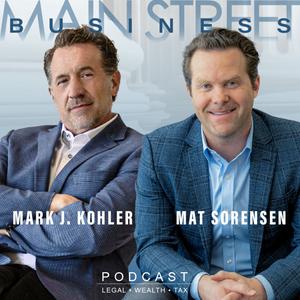 Main Street Business
Main Street Business
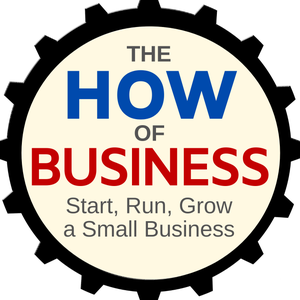 The How of Business - How to start, run & grow a small business.
The How of Business - How to start, run & grow a small business.
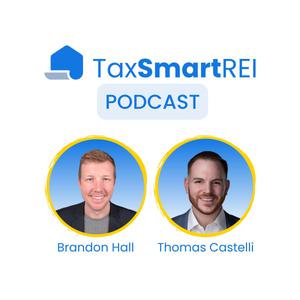 Tax Smart Real Estate Investors Podcast
Tax Smart Real Estate Investors Podcast
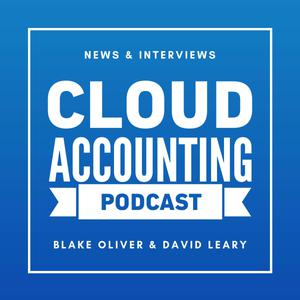 The Accounting Podcast
The Accounting Podcast
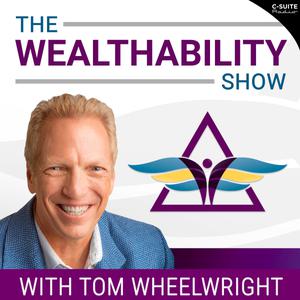 The WealthAbility Show with Tom Wheelwright, CPA
The WealthAbility Show with Tom Wheelwright, CPA
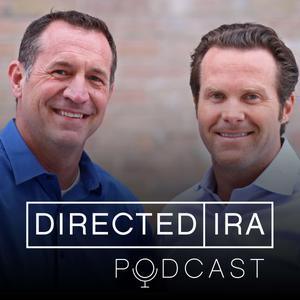 Directed IRA Podcast
Directed IRA Podcast